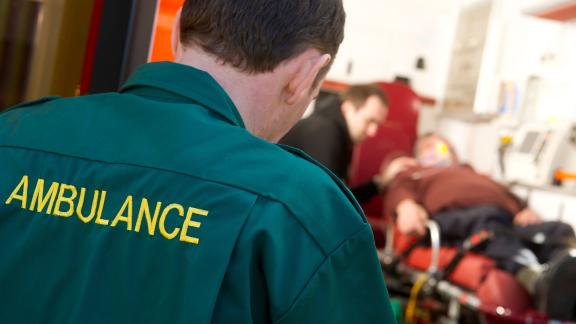Consider an apprenticeship in the NHS

Considering an apprenticeship can take you in many different directions in the NHS, across many of the clinical and non-clinical roles from entry level to a masters level degree.
Why do an apprenticeship
Apprenticeships are work-based training programmes that are designed so that you can train for specific job roles. Apprenticeships allow you to learn new skills and get a qualification without going back into full time education.
Because you are working you are also earning a salary. Plus, you’ll get paid annual leave and other staff benefits.
As they are linked to your job your employer covers the cost of training, so you don’t have to take out a student loan.
But you still get the benefits of being a student, you can get an NUS apprentice card which gives you discounts at many online and high street retailers.
You are guaranteed to spend a minimum average of 6 hours off the job training per week learning and developing while getting to know colleagues from across the NHS and from different backgrounds.
You will get a recognised qualification at the end of your apprenticeship which can boost your earnings and career prospects. You can take multiple apprenticeships throughout your career, providing they are at different levels or in different specialisms, allowing you to continue to develop your skills for many years to come.
What types of apprenticeships can I do
In the 2020/21 financial year, the NHS had impressively recruited 37,500 apprentices.
Apprenticeships offer routes into more than 350 NHS careers in both clinical and non-clinical roles. You could be anything from a business administrator to a trainee nurse associate to a podiatry degree apprentice or even a sustainability business specialist,
Apprenticeships are available in many different levels, from level 2 which is equivalent to GCSE all the way to level 7 which is equivalent to a master’s degree.
| Name | Level | Equivalent education level | Examples of roles these equate to |
|---|---|---|---|
| Intermediate | 2 | 5 GCSE passes at grade A* - C or 9 - 4 | Healthcare support worker, healthcare science assistant, finance assistant, passenger transport driver |
| Advanced | 3 | 2 A Level passes/Level 3 Diploma/International Baccalaureate | Senior healthcare support worker, ambulance support worker, business administrator, pharmacy technician |
| Higher | 4, 5, 6 and 7 | Foundation degree and above | Nursing associate, mammography associate, dental technician, business analyst |
| Degree | 6 and 7 | Bachelor's or master's degree | Nurse, podiatrist, dietician, manager, advanced practitioner, accountant |
You can explore all of the apprenticeship standards available on the Skills for Health healthcare apprenticeships website.



